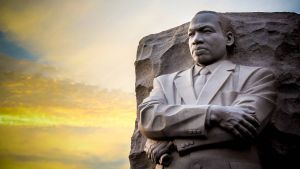Immigrants in the United States without proper documentation will no longer have to fear getting arrested at schools, churches, hospitals and a number of newly “protected” areas.
The Associated Press has reported that the Department of Homeland Security and the U.S. immigration authorities issued new guidelines on Wednesday, Oct. 27, that was, in part, “a broader effort to roll back the approach to enforcement under President Donald Trump.”
According to a memo from DHS Secretary Alejandro Mayorkas outlining the policy, immigration agents and officers have now been directed to no longer make arrests or conduct searches at a range of sensitive locations “to the fullest extent possible.”
The AP says the change in the directive “is the latest in a series of immigration policies under President Biden aimed at taking a more targeted approach to enforcement. The policy is similar to one under President Barack Obama that restricted arrests at churches and schools.”
In addition to illegal immigrants now being safe from potential arrest at schools, the new memo means that individuals are now also safe from arrest at daycare facilities, city buildings, courthouses, playgrounds, recreation centers, as well as political demonstrations and rallies. The directive also provides protection at several more broadly categorized areas, including “places where children gather” and “places where disaster or emergency response and relief is being provided.”
Earlier this year, immigration enforcement officials were also given new guidelines on who they should be focused on arresting, including recent border-crossers, national security threats and people accused of a serious crime.
“Mayorkas has argued that his agency does not have the resources to pursue all of the estimated 11 million people in the country without legal status and that it should focus on those who pose the greatest risk to society,” AP reported.
In a statement explaining the change in federal policy, Mayorkas said, “we can accomplish our law enforcement mission without denying individuals access to needed medical care, children access to their schools, the displaced access to food and shelter, people of faith access to their places of worship, and more.”
There are, however, some exceptions to the new immigration guidelines. Individuals who pose a national security threat or pose an imminent risk of death, violence or physical harm to a person can still be arrested at any location. The same is true for anyone in “hot pursuit” from immigration officials who might pose a public safety threat.
“Otherwise, agents or officers would have to get approval before taking an enforcement action ‘in or near’ a protected area,” AP reported.
Related: For more recent diversity and inclusion news, click here.


















